10 things to know if you have been invited to a Jewish wedding
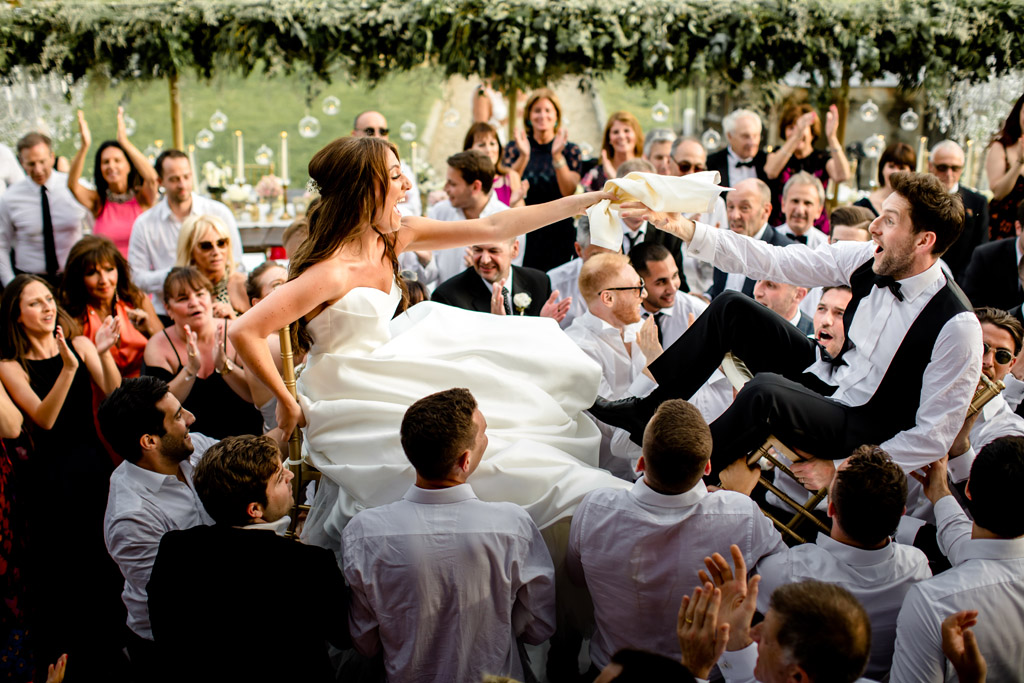
Have you received an invitation to a Jewish wedding? If so, it’s likely you have questions and would like to know more about what to expect.
We invited a specialist Jewish wedding planner, and English Wedding Blog member, lovely Michelle Jacobs of Elegante by Michelle J to take us through the key elements of a typical Jewish wedding. All of the beautiful images we’ve included are by Italian Luxury wedding photographer David Bastianoni.
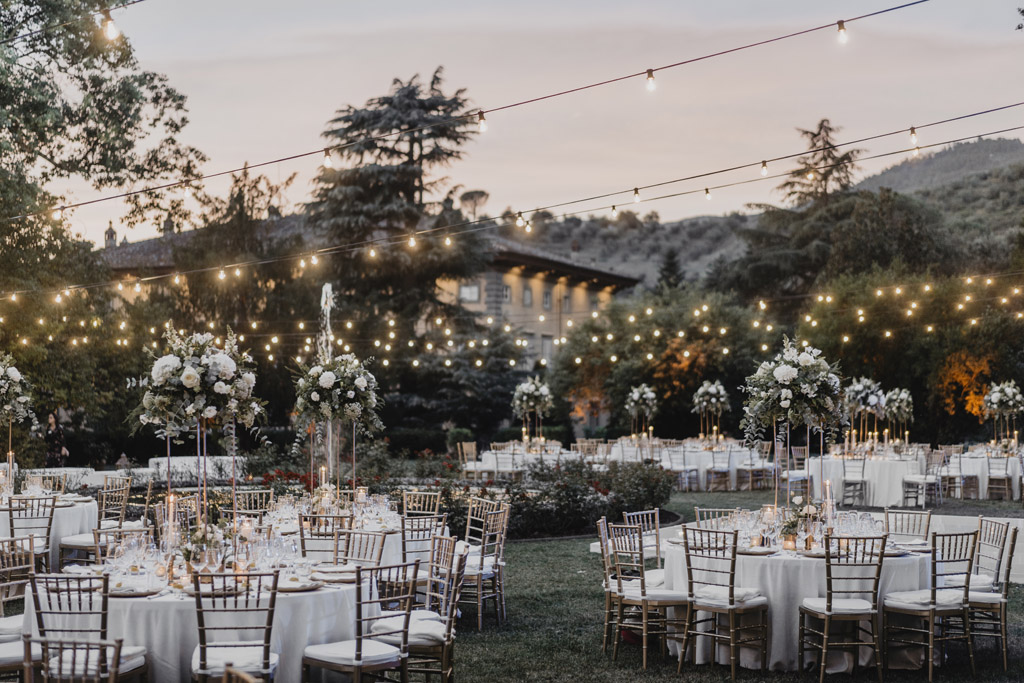
1. Day of Week
Jewish weddings most commonly take place on Sundays. Never on a Saturday and rarely on a Friday as the Jewish Sabbath (when weddings are not permitted) runs from sunset on Friday to sunset on Saturday.
Other auspicious days for Jewish weddings are Tuesdays and Thursdays.
So, when your invitation arrives, do not be surprised that the wedding day is not a Saturday.
2. Dress Code
Your wedding invitation will usually specify the dress code. This is likely to be either “Black Tie” or Lounge Suits. Either way, for female guests, the appropriate attire is not day dresses; most likely you should choose to wear either a long or short party dress, depending on the formality of the specified dress code and the wedding location. For example, a 5* hotel ballroom will warrant a long evening gown, but a less formal venue will suit a short party dress. If in doubt, ask your host or another member of the bridal party.
Jewish weddings don’t start too early and the wedding reception typically takes the form of a dinner dance, rather than a wedding breakfast followed by a party. Hence the dress code being based around evening wear.
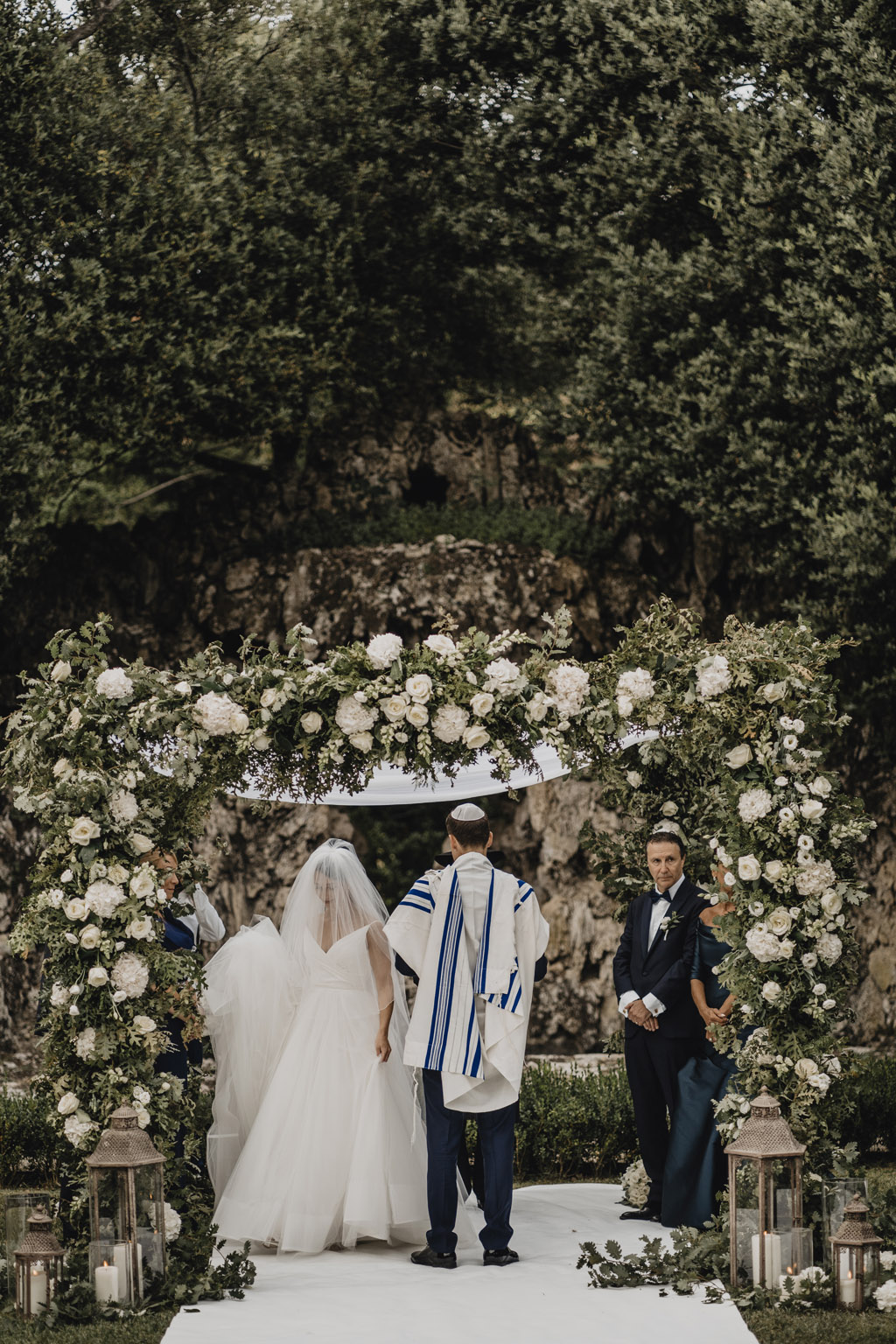
3. The Ceremony
The wedding ceremony is known as the Chuppah. This may take place either at a Synagogue or at the venue for the reception. Either way it will follow a similar format:
- Men and women may be seated separately (on opposite sides of the aisle); this is dependent on the level of orthodoxy, but if you are attending with a partner of the opposite sex, be prepared to sit separately during the ceremony. As a wedding planner, I usually advise my couples to arrange for any of their non-Jewish guests to be seated with someone who knows the format and will help to make them feel comfortable. Hopefully someone will reach out to you, but if this does not happen, perhaps try to find out in advance about the ceremony seating arrangements
- All men will be expected to wear a skull cap (known as a Kippah); but these are usually provided by the couple and handed out on arrival
- If the ceremony is taking place within an Orthodox Synagogue, ladies should cover their shoulders and dress relatively modestly; my recommendation would be to seek advice from your host as to the level of modesty required, if any, as it does vary between congregations
- The couple will marry under a canopy (this is the actual “Chuppah”) and will be joined by their parents and grandparents
- A cantor (religious singer known as a Chazan) will usually sing during the ceremony and is a secondary “officiant” to the Rabbi. Some of the Jewish songs that the Chazan sings are very moving and meaningful
- The processional commences with the groom who is accompanied down the aisle with his parents
- The bride may also be accompanied by both of her parents, though some brides opt just for their father
- The ceremony starts with the bride circling the bridegroom though this is not a strict requirement and some brides choose not to do this
- The ceremony includes the reading of the marriage contract (known as the Ketubah) and seven blessings, as well as a sermon and exchange of rings.
- The ceremony lasts approximately 45 minutes
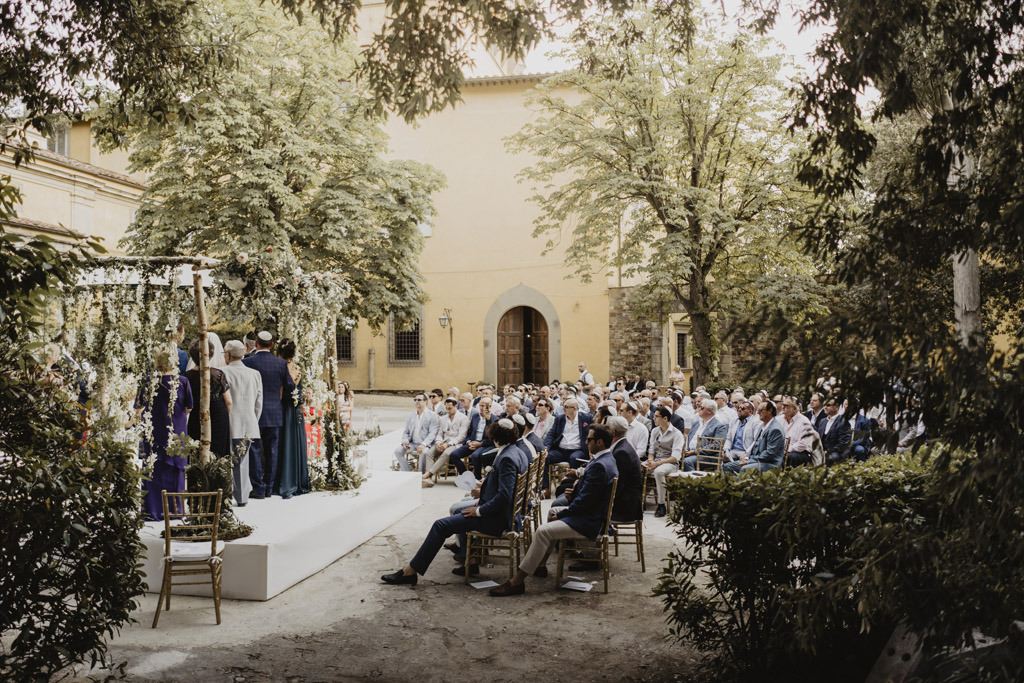
Smashing the Glass
This is probably the most well-known tradition of a Jewish wedding. At the end of the ceremony the groom stamps on a glass to smash it. (The glass will be wrapped in a bag or a napkin). As the congregation hear the smashing of the glass, they will erupt into shouts of “Mazeltov”, which means congratulations. Singing and some dancing under the Chuppah then ensues with much hugging and celebration.
There are several accepted explanations of the reason for “smashing the glass”. Two in particular, I personally feel, are most valid:
- Marriage is a covenant, which in Judaism is represented by breaking or cutting something
- It is a lesson that even in times of joy, we need to remember the pain and loss that has been experienced by the Jewish people
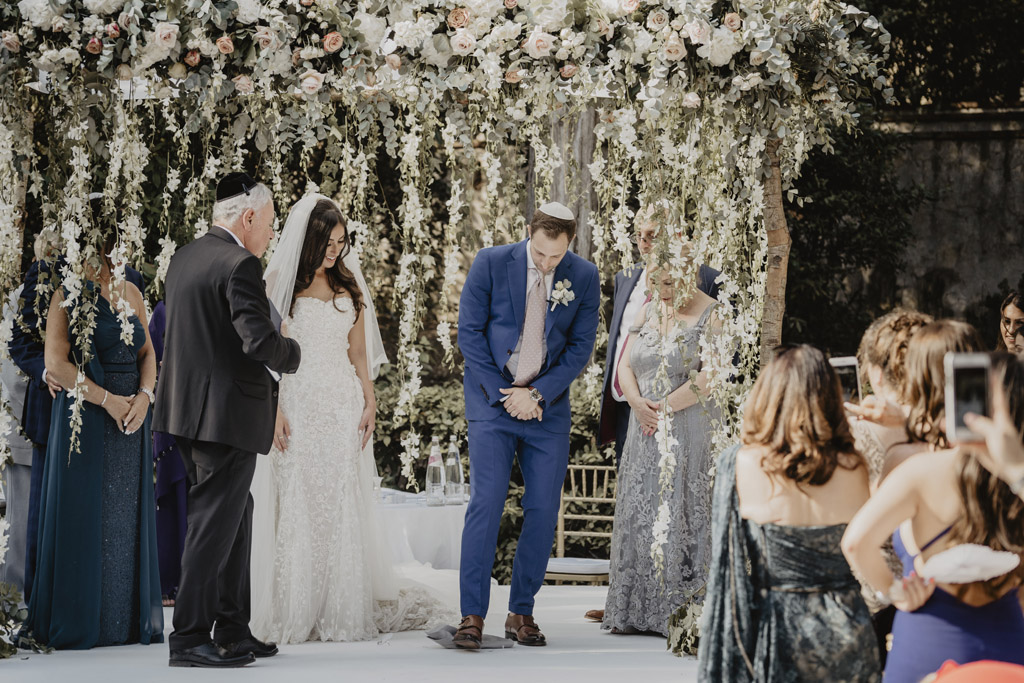
5. Jewish Dancing
Of all the Jewish wedding traditions that you will encounter, this is the one that you are actively encouraged to participate in. Jewish dancing (also known as Israeli dancing or Hora) usually takes place once guests have been invited to dinner, but before any food is served. Guests are invited to join the couple on the dance floor and a very frenetic 10 – 15 minutes of Israeli style dancing takes place., which essentially involves dancing around in circles to uplifting Hebrew songs. Usually, there are separate circles for the men and the women with the bride and groom at the centre. After a few minutes the couple are raised on chairs and are passed a napkin or handkerchief to hold between them.
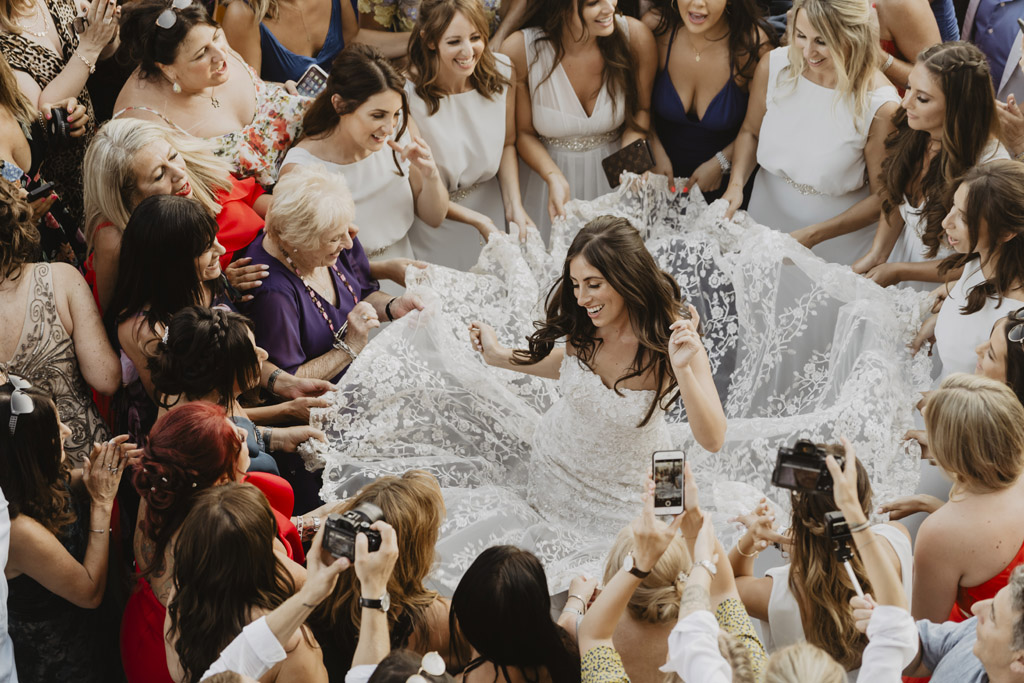
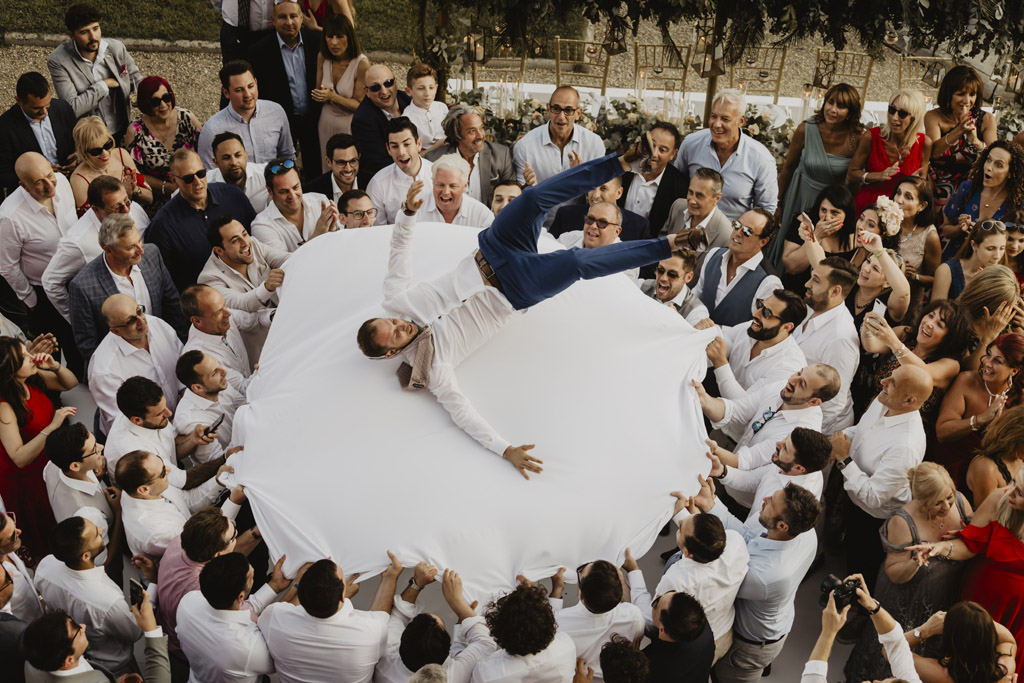
6. Dinner Format
At Jewish weddings we dance during dinner as well as afterwards. In addition to the Israeli dancing before dinner, it is fairly typical for the band to perform throughout the meal and encourage guests on to the dance floor between courses.
You will also hear speeches during dinner, and sometimes toasts are given to the Queen and to the President of the State of Israel. At the more observant or traditional Jewish weddings there will be an initial prayer which is our equivalent of Grace. And after dinner we sing Grace After Meals and a repeat of the wedding blessings. Although it should be noted that these days not all Jewish weddings include these more traditional, religious elements.
When you are seated for dinner, your menu card will usually detail the order of dinner events on the reverse so you will know in advance which of the traditions I have just described are likely to be included.
All of this means that the wedding dinner goes on for several hours with just a relatively short party set of approximately 90 minutes at the very end once the dinner and all of the formalities are complete. But do remember that you will have been dancing and partying from the beginning, so nobody is “short-changed”.
The wedding is likely to end by midnight. As the wedding is most probably taking place on a Sunday evening, many of the guests will be expected at work the next morning. Of course, this will not apply if you are attending a destination wedding when the dancing is likely to continue later.
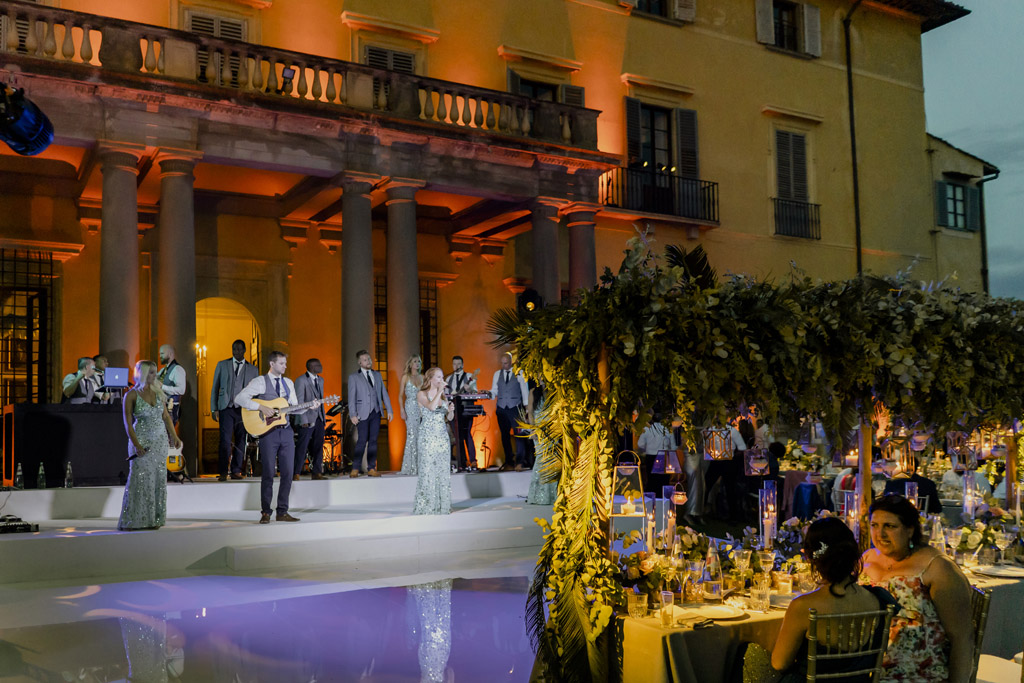
7. Food
You should expect to eat well at a Jewish wedding. Food is plentiful, starting with a lavish drinks and canapé reception (often with food stations) and followed by a 3 or even 4-course meal.
The food may be Kosher or it may be what we call a “non-offensive” menu.
If a kosher caterer is providing the wedding meal:
- Expect to be served a meat or chicken based main course
- As we are not permitted to serve meat with dairy, there will be no dairy items whatsoever on the menu and this will include no milk with your coffee
- Wines will also be kosher
- But, to all other intents and purposes, your wedding dinner will be no different to what you could expect at any other wedding
If the venue is providing the meal:
- It is most likely that the couple will have chosen a non-offensive menu
- What we mean by this is no offensive items to strictly observant guests
- So, no meat of any description and no pork, ham or shellfish
- Your main course is most likely to be based around fish
- Other elements of your meal will be based around dairy and vegetarian ingredients
8. Drink
Most Jewish weddings include an open bar throughout the event. It’s very unusual for Jewish families to expect their guests to pay for their drinks. It’s also usual for the bar to be open from the start of the drinks reception, throughout dinner and through to the end. So, if you fancy a cocktail or a spirit or a beer these will most likely be available.
9. Gifts
The wedding invitation will probably include details of the couples’ wedding gift list.
If there is no gift list, many guests will opt for a give a gift of money and this is quite the norm at Jewish weddings (even when there is a gift list).
Please note, there is no obligation to either buy from the list or give money so essentially you are fee to do as you wish with regard to your wedding gift for the couple.
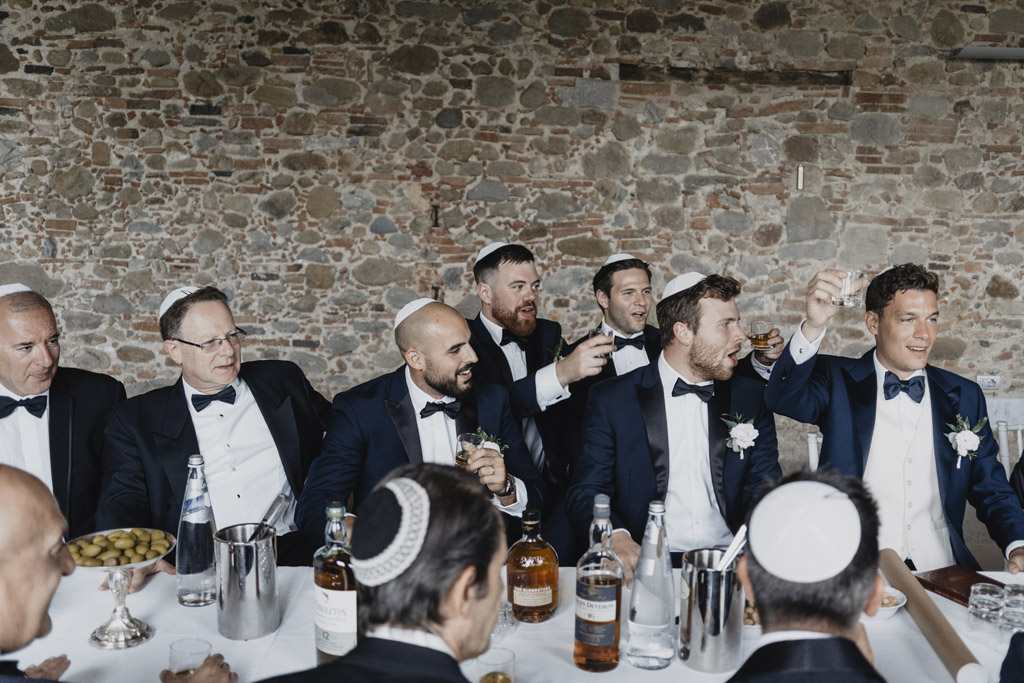
10. Tisch and Bedeken
I want to conclude with details of two short pre-wedding events that you will only participate in if you are a member of the bridal or groom’s parties.
The Tisch can best be described as the groom’s pre-wedding drink with his close male friends, and immediate male members of the wedding party.
The men gather just prior to the ceremony, usually for whisky and nibbles, and the Rabbi will join them.
The Tisch usually includes the signing of the Ketubah (the marriage contract) and some singing and dancing.
Following the Tisch, the groom is escorted to the Bedeken
The Bedeken is a historical tradition from Biblical times, when Jacob was “tricked” into marrying Leah, when he was expecting to marry her sister, Rachel. At the Bedeken ceremony, the groom is invited to “check” the bride is the person he is expecting and he then lowers her veil.
Traditionally, the Bedeken takes place privately, with just the couple, the Rabbi, their parents and the bridal party in attendance. It is the equivalent of the groom’s “first look” and can be very moving and emotional.
As the Bedeken ceremony excludes most of the guests, it means they are prevented from witnessing the groom seeing his bride for the first time. So, in recent years, a public Bedeken has increased in popularity. The groom meets his bride as she walks down the aisle and the Bedeken ceremony is performed there.
I would LOVE to feature more Jewish weddings on the English Wedding Blog. If you’re a Jewish couple and you’d like to be featured, please do get in touch! I’d also love to reach out to all wedding photographers and ask for your submissions – Jewish and interfaith weddings are especially welcome! You’ll find submissions guidelines here, and you can ask me anything by email – I’m info@english-wedding.com
Huge thanks to Michelle for such a fabulous article. If you missed our previous feature, do check out A Beautiful Escape – wedding inspiration from Osea Island. You can see Michelle J’s vendor profile here, and visit her gorgeous website at https://elegantebymichellej.com
The Elegante by Michelle J mission is to always create the most magical and memorable of days for my couples and their guests. I pride myself on being a highly recommended luxury wedding planner specialising in overseas and UK destination weddings.



0 Comments